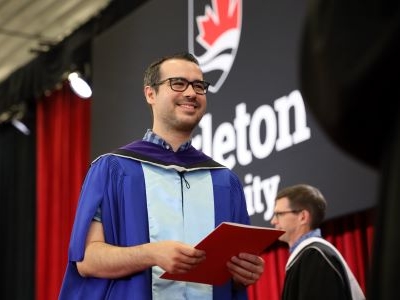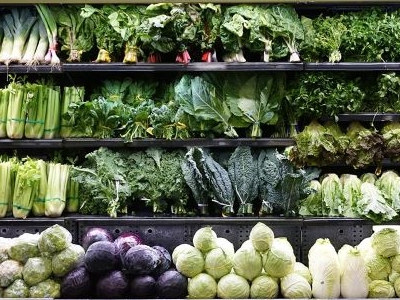Meaghan Kenny, a new alumna from the Department of Geography and Environmental Studies defended her thesis in May. “Exploring Karen Experiences of Urban Agriculture in Ottawa: The Importance of Place-Making, Agriculture and Cultural Identity,” highlights the benefits of having access to farmland for Ottawa’s Karen community.
The Karen—a group of farmers from the Thai-Burmese border—came to Canada as refugees in 2006, after enduring decades of persecution caused by a long-standing military conflict in the region.
Kenny hopes her work will encourage the city and the National Capital Commission to make Ottawa’s farmland more accessible.
In 2011, Kenny found land for the Karen to farm from Just Food, an organization that promotes a just and sustainable local food system in the Ottawa region. A year later, when she won $1,000 from the Awesome Ottawa fund, she put it toward the Karen Community Farm Project.
This became the focus of Kenny’s thesis.
“I wanted to know how they were farming and how it was benefiting them, to see if it could be applied to other groups who come to Canada with agrarian backgrounds,” says Kenny.
After extensive participation and interviewing, she saw clear benefits to preserving the Karen’s lifestyle.
“A lot of their past haunts them, so there are a lot of mental health issues,” says Kenny. “I think this shows that having meaningful work can be a preventative measure. It gives a sense of purpose—a sense of self-worth.”
Farming, she says, has also helped the Karen preserve their sense of community.
“I see a sense of autonomy being built, which is something that they never really had after being persecuted and living in refugee situations for such a long time.”
These results, says Kenny, made her realize the need for greater access to farmland in Ottawa.
“I take issue with the fact that there’s so much green space in this city and its use is determined by only a couple of government entities,” she says. “I think green space can be multifunctional if more people are given access to it. Maybe someone’s idea of recreation isn’t just biking along, but actually engaging with the land.”
Associate Prof. Patricia Ballamingie, Kenny’s thesis supervisor, says Kenny’s research points to the broader issues surrounding resettlement in Canada.
“I have been deeply impressed by Meaghan’s commitment to community-based action research,” says Ballamingie. “Meaghan’s research demonstrates significant gaps in how we tailor support programs to accommodate newcomers to Canada.”
Ultimately, Kenny says she hopes her research can help fill those gaps.
“We need a system that’s a bit more diverse,” she says, “one that finds the right fit for people and their skills.”
Despite graduating, Kenny says her work isn’t done.
“I’d like to keep connecting people to places through agriculture in ways that benefit them,” she says. “Sometimes a small action like having some space to grow food can make such a significant difference. That’s what motivates me.”





